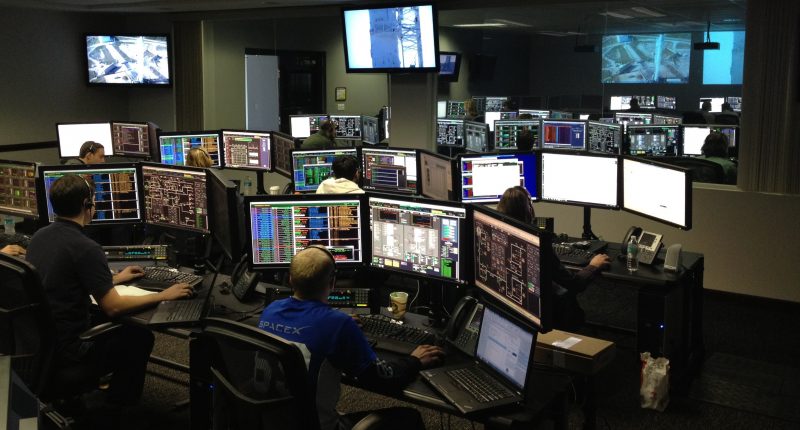Did you ever have a feeling that you are a little too dependent on the varied forms of modern technology? You might have felt a sense of extreme anxiety when you could not find your phone for a minute or so. Similarly, you might not know any other way to reach your friend’s place without a GPS application on your phone. Regardless of whether you are a millennial or a baby boomer, there is no denying that all generations are dependent on technology to some extent. The millennials might find it hard to stay five minutes without their phone, and the baby boomers might love playing some games after True Blue online casino login every day. In some way or the other, we all need our daily dose of technology. But, what are the possible consequences of this increasing dependence on technology? Let’s find out!
The Perils of Technological Dependence
The fact remains that the rapid increase of technological dependence comes with several perils. Here’s discussing the five most common ways in which relying on technology all the time might be worrying.
- Depression and Anxiety
Studies have linked depression, anxiety, and other mental health issues with an increase in the use of mobile devices. It might be elucidated by several influences. For instance, the relentless barrage of information and news might make people oblivious to the real world. If you are too obsessed with the virtual world, you might be deprived of having actual relationships.
- Short Attention Span
Human attention span was twelve seconds in the year 2000, which was around the time when smartphones started gaining popularity. At present, the human attention span is eight seconds, compared to the fabled goldfish that has an attention span of nine seconds. Right from a webpage that takes a bit longer to load to the social media messages that need to be replied to immediately, impatience is a result of the dependence on fast-paced modern technology. People no longer want to spend even a few minutes waiting.
- The Impact on Memory
Researchers have also pointed out that an increase in the use of advanced smartphones to click pictures, take videos and notes, and set reminders can also impair memory. Your mind knows that all the information has been stored somewhere else. Thus, it feels less compelled to remember the details. So, the mental capacities are not dedicated to remembering stuff. For instance, you know that you can check the list of movies by Hugh Jackman online all the time, so why bother to remember that? In fact, how many phone numbers can you say without checking the contact list on your phone?
- Excessive Addiction to Technology
Technological dependence is so great for some people that they suffer from extreme anxiety whenever they are unable to access technology. It might manifest as social media or gaming addiction or just about any kind of tech-based habit. It is important to mention that tech addiction is a severe type of problem. You might not have the urge to check the notifications on your phone every second. But that does not imply that you are free from the addiction.
- Reducing the Access to Skills
Constant use of technology to enhance or replace certain skills is gradually decreasing your ability to gain access to that particular skill. For instance, in case you always use your smartphone for navigating to the locations in the city, you will never know how to read maps or reach anywhere without using GPS.
Is Tech Dependence Turning People Into Modern Cyborgs?
Cyborgs are the organisms that have both cybernetic and natural components to drive the functionality, thereby improving on both the category of components that they would contain by themselves. For instance, smartphones are not supposed to introspect or form abstract thoughts. Your memory is not reliable enough to perfectly represent each of the past events. But you can perceive every detail of the locations you have visited before and outline their importance in a broad context. Similarly, modern cyborgism stemming from tech dependence refers to outsourcing certain functions that you are no longer able to generate on your own.
However, this is not something that has started due to tech dependence. Books have always been the way to have lengthy details of information contained in a compact space. After all, human cognitive limitations make it impossible to hold vast amounts of information in detail at the same time. Keeping this point in mind, calling people cyborgs because they outsource particular functions to tech gadgets would be like criticizing people for being too dependent on books for knowledge. At the end of the day, no one can deny that technology has made life a lot easier than ever for everyone. Of course, if you replace every skill of yours with technology, it points to an issue. But outsourcing a few functions to modern tech is completely fine.
Is Technological Dependence Curbing Innovation?
It is important to consider how tech dependence is changing the ability to innovate, and thus, impacting the progress of modern societies. You might be thinking that new and better technology is coming up every month, so there is an innovation for sure. But there is another way to look at it, as well. When you are completely dependent on specific kinds of technology such that you are unable to comfortably live without them, you will end up using different forms of the same technology. Here’s explaining this factor with an example.
For instance, people are too dependent on new-age smartphones. Now, for the longest time period, the line of development will focus on coming up with faster, smaller, and more convenient versions of the smartphone. The focus will not readily shift to bringing you something completely novel. Let’s take you to a time before smartphones and give you another example. Suppose you were in 1894 and you are completely dependent on horses for going from one place to another.
During those times, the metropolitan areas had at least fifty thousand or more horses. The situation brought forth a number of problems, such as speed issues, diseases, horse corpses, and manure. Going by a linear trend of progression, people came up with better techniques and methods to manage the horses. They made automated systems to clean the manure and had training programs that made the horses run faster. It took a long time for them to finally come up with automobiles as the solution to their problems. Summing up, increased dependence on the present technologies blinds people to a future with better technologies.
Finding the Necessary Balance in Groups and As Individuals
So, extreme dependence on modern tech might impact people’s cognitive capacities, mental health, and the future of innovation. It gives rise to the question of what you can do to mitigate this increasing dependence of technology on an individual, as well as group level. There is no need to completely stop using technology or banish all smartphones and laptops from home forever. The most viable solution to the issue is to find the proper balance. As an individual, you can make the conscious choice to limit the time you engage with technology and rely more on your cognitive abilities. When you are in a group or on a social occasion, try to resist the rising temptation to check your tech gadgets. In fact, you can encourage others in the group to do the same.
The Bottom Line
There is no denying the limiting and destructive potential of tech dependence, but that is no reason to demonize all forms of technology. Banishing all tech gadgets for good is never an effective or long-term solution in the present time. The key lies in making sure that technology is mostly used for necessities instead of being attached to them all the time of the day.





